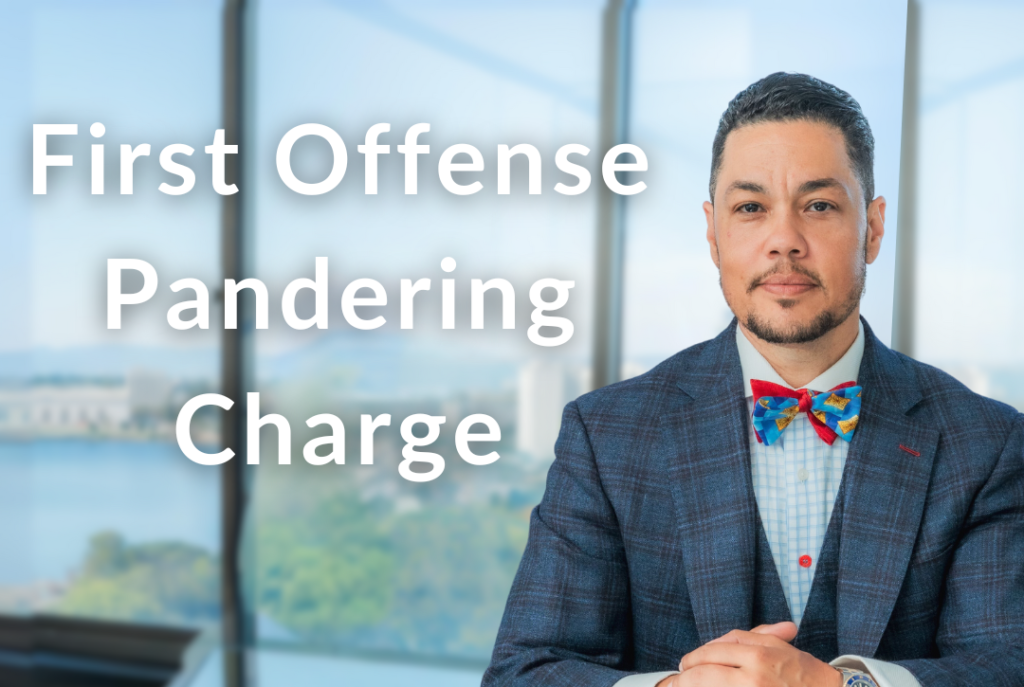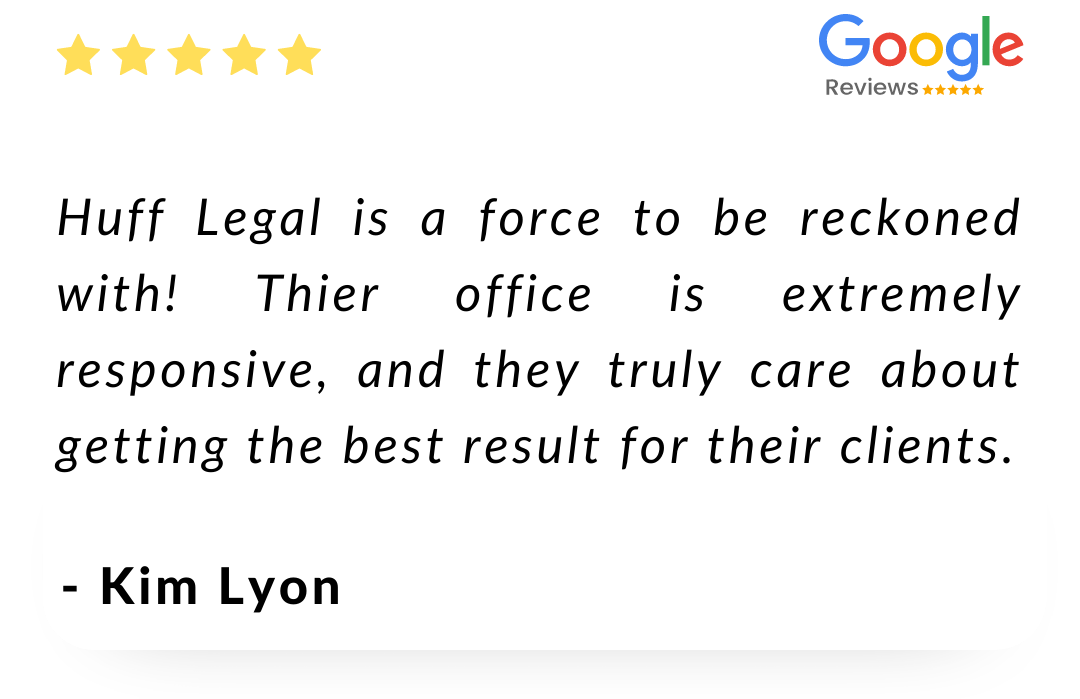First Offense Pandering Charge in California
First Offense Pandering Charge in California
A first offense pandering charge in California involves serious legal implications, even for a first-time defendant. Pandering, defined under Penal Code 266i, means persuading or arranging for someone to engage in prostitution, often resulting in felony charges.
Penalties can include jail time, fines, and long-term consequences that impact your personal and professional life. Navigating these charges can be challenging, especially with strict California laws governing sex-related offenses.
This article explains the key elements of a pandering charge, potential legal defenses, and possible outcomes to help you understand your options
What is Pimping and Pandering Charges?
Understanding these charges can help clarify the defenses available and the potential consequences if convicted.
What is Pimping Under Penal Code 266h PC?
Pimping, as defined by Penal Code 266h, involves financially benefiting from the proceeds of another person’s participation in prostitution. You may face charges for:
- Collecting money from a sex worker’s earnings
- Soliciting clients for a sex worker
- Acting as a “middleman” for payments or other proceeds
What is Pandering Under Penal Code 266i PC?
Pandering refers to encouraging or arranging for someone to engage in prostitution, whether or not there’s direct financial benefit. Under Penal Code 266i, pandering charges can be based on:
- Persuading or coercing someone into sex work
- Transporting or arranging transport for prostitution purposes
- Facilitating sex work, even through online communication
Key Differences Between Pimping and Pandering
While closely related, these charges focus on different aspects of the offense:
- Pimping: Directly profiting from prostitution
- Pandering: Arranging or encouraging someone to engage in prostitution
Is Pimping Illegal in California?
Yes, pimping is explicitly illegal under California law and can lead to serious consequences, including jail time and fines. Even indirect involvement in the financial aspects of sex work can result in a pimping charge.
Average Sentence for a First Offense Pandering Charge
For a first-time conviction, pandering carries heavy penalties, including:
- 3-6 years in prison
- Fines up to $10,000
The specific sentence may vary based on factors such as the age of the individual involved and prior criminal history.
Request a Free Consultation
Penalties for First Offense Pandering
Potential Jail Time and Fines
A conviction may lead to:
- 3-6 years in state prison
- Up to $10,000 in fines
- Additional fines, especially in cases involving minors
Factors Influencing Sentencing
Penalties can vary based on:
- Prior criminal record
- Age of the victim
- Use of coercion or force
- Number of people involved in the offense
Immigration and Gun Rights Consequences
Convictions for pandering carry long-lasting effects:
- Immigration Status: Non-citizens risk deportation.
- Gun Rights: Convicted felons lose the right to possess firearms in California.
Other Legal Ramifications for Convicted Felons
Beyond prison time and fines, a pandering conviction may lead to:
- Mandatory registration as a sex offender
- Restricted access to employment and housing
- Significant social and personal impacts
Defenses Against Pandering Charges
Facing pandering charges can feel overwhelming, but several legal defenses may be available to challenge these accusations. Effective defenses include establishing entrapment, proving a lack of intent, highlighting false accusations, and demonstrating insufficient evidence.
Entrapment by Law Enforcement
Entrapment occurs when law enforcement induces someone to commit a crime they would not otherwise commit. If you were charged with pandering due to an undercover sting, you could argue that the police used inappropriate tactics, like excessive pressure or coercion, to get you to commit the crime.
For this defense to hold, it must be shown that the only reason you engaged in the alleged activity was due to the police’s actions.
Lack of Intent to Engage in Pandering
Pandering charges require that you acted with the specific intent to encourage or facilitate prostitution. If you can demonstrate that you did not have this intent—perhaps because your actions were misunderstood or because your intentions were not to promote illegal activities—this defense can be compelling.
Pandering is a “specific intent” crime, so without intent, you cannot be legally convicted.
False Accusations or Misunderstandings
Sometimes, personal conflicts or misunderstandings can lead to false accusations of pandering. For instance, if you have a personal relationship with someone in the sex industry, they may falsely accuse you due to jealousy, revenge, or as a means to protect themselves from legal repercussions.
Showing inconsistencies in their claims or providing evidence of their motivations can be critical in defending against these accusations.
Establishing a Lack of Evidence
A key element in defending against pandering charges is demonstrating a lack of evidence. Your attorney can challenge the prosecution’s case by questioning the credibility of witnesses, the reliability of surveillance or recordings, and any lack of concrete evidence tying you to the act of pandering.
If the prosecution cannot meet the burden of proof beyond a reasonable doubt, your charges may be reduced or dismissed.

As Seen On












Related Offenses and Lesser Charges
When facing pandering charges, understanding related offenses and potential lesser charges is crucial. This section covers related California crimes and options to negotiate for reduced charges.
Other Related California Crimes
Charges often related to pandering include:
- Prostitution and solicitation
- Pimping, under Penal Code 266h
- Broader offenses involving exploitation
Understanding these related crimes helps prepare a comprehensive defense.
Negotiating Lesser Charges to Avoid Jail
Negotiation may be possible to reduce a pandering charge to a lesser offense. Potential benefits of a lesser charge include:
- Reduced jail time or the possibility of probation
- Lower fines and penalties
- Alternative sentences like community service or mandatory programs
With skilled negotiation, your attorney may work with the prosecution to reach a plea agreement that avoids severe penalties.
Can a Conviction Be Reduced or Expunged?
If convicted, there are options to lessen the impact on your record through reduction or expungement. Key points include:
- Expungement may clear the conviction, helping with employment and housing
- Eligibility requirements often include completion of sentencing terms
- Reduction may be possible depending on the severity and details of the offense
An attorney can help explore eligibility for expungement, allowing you to move forward with less impact on your personal and professional life.
Moving Forward After a Pandering Charge
Facing a pandering charge can be overwhelming, but there are steps you can take to rebuild your life. Legal pathways like expungement, seeking qualified legal support, and understanding any restrictions on your rights can make a significant difference in your future.
Expungement Options for Pandering Convictions
Expungement removes a conviction from your public record, making it easier to find employment and housing. In California, expunging a pandering conviction may be possible if you’ve completed all sentencing terms, including probation. Expungement provides benefits such as:
- Enhanced employment opportunities without the shadow of a criminal record
- Relief from certain societal stigma
- Improved eligibility for professional licenses
A qualified attorney can review your case and help determine eligibility for expungement, providing you with a clearer path forward.
Seeking Legal Assistance
Professional legal guidance is essential when navigating charges like pandering, both during and after the case. An experienced attorney can help:
- Explore defense strategies tailored to your case
- File expungement requests and pursue record-sealing options
- Advocate for your rights if facing employment or housing challenges due to your record
Choosing the right legal representation can make a significant difference in your recovery from a pandering charge, helping you regain control and peace of mind.
What Rights Do Convicted Felons Lose in California?
A pandering conviction can impact certain civil rights, particularly if it’s a felony. In California, convicted felons may lose:
- Voting rights (which can be restored after completing probation or parole)
- Firearm ownership rights
- Eligibility for some professional licenses
What Clients Say About Us





Take the First Step Toward a Fresh Start
Dealing with a pandering charge can feel isolating, but you don’t have to face it alone. At Huff Legal, we’re here to help guide you through the next steps, from understanding your rights to pursuing options like expungement.
Contact Huff Legal today for a confidential consultation. Our experienced attorneys are here to support you with knowledgeable, compassionate advice.
Let us help you explore your options and move forward with confidence.
LET HUFF HELP YOU
As a former police officer and patrol supervisor and his time spent as a United States District Court Judicial Law Clerk to the Chief Judge, Attorney Huff knows how to navigate all levels of the complex criminal law system. We also have more than 55 years of combined experience dealing with various complex criminal legal matters and have helped just over 1,500 clients over the past few years.
Why Huff Is Your Best Option For Criminal Defense
55+ Years of Combined Experience
At Huff Legal, we have more than 55 years of combined experience dealing with complex criminal legal matters, which can oftentimes be quite challenging. In order to get the outcome you deserve, you need a team of experienced attorneys on your side, who can help you navigate the legal system, so you can move past this situation and focus on the life ahead of you!
5 Star Rating on Google
We have a proven track record of success and are dedicated to our clients’ best interests. If you’re looking for a law firm that will always have your back, look no further than Huff Legal. Just have a look at some of our amazing client reviews over here!
1,500+ Happy Clients
Over the years, we’ve had the privilege of helping over 1,500 clients with their legal needs. When you work with us, you can be confident that you’re getting the best possible legal representation. We’re proud of our track record and our reputation for being a firm that delivers great results.
What Our Clients Say About Us


Sheila


Abel Resendiz


Manuela Frazier


Doris
Contact Huff Today
Request A Free Consultation
* Free consultations only available for Criminal Defense


In legal terms, an accessory to murder refers to an individual who aids, abets, or otherwise assists in committing a murder. While the specifics may vary across jurisdictions, California law treats accessories to murder as active participants in the crime, holding them accountable for their actions. In San Francisco Bay Area, there are two primary types of accessories to murder:
In the event that you find yourself in the Bay Area facing accessory to murder charges, you should first call a criminal defense attorney who can help you defend your rights and lessen the effects of the investigation. Contact an attorney at Huff Legal as soon as possible following your arrest. An accomplished attorney from Huff Legal will thoroughly examine your case, who will then develop a strategy and build a defense.
